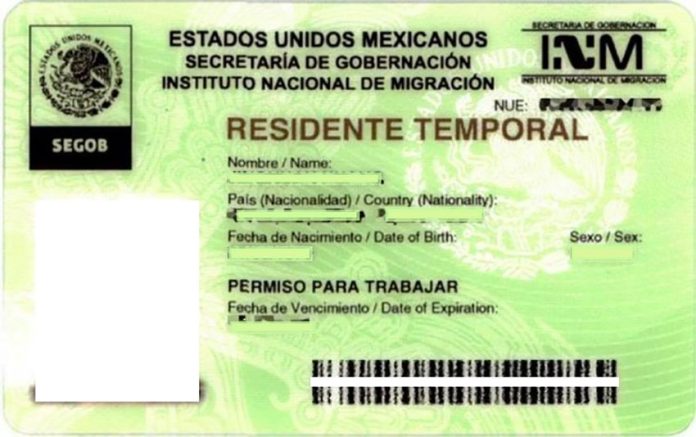Most people reading this article probably realize that any remote worker who wanted to come to Mexico for a year could just enter as a tourist and get a 180-day tourist visa — no questions asked.
At the end of the 180 days the remote worker could either: a) cross a land border to the U.S., Guatemala or Belize and return immediately with a new visa; b) fly to any country and return with a fresh 180-day visa; c) apply within Mexico for another tourist visa (temporarily available because of the pandemic); or d) just overstay their visa and pay a small fine on the way out if flying or probably paying no fine if driving out or walking across a border.
But most potential remote workers around the world don’t know this information, and would be scared of overstaying their tourist visa. Many potential remote workers would likely consider Mexico if there was a more well-known, organized, easy, and clear path to come to Mexico legally.
Many other countries have jumped on the remote worker visa concept as a way to fill empty rentals, restaurants and stores, and stimulate the economy, partly replacing lost tourism and tax revenues. The Mexican tourism industry will likely not fully return to pre-pandemic levels until 2022 or beyond. Why not offer and promote a cheap, quick, and easily obtainable Mexico remote worker one-year (and renewable) visa?
Of course, anyone could apply for the existing Mexican temporary worker visa but that is a long and complicated process involving bank statements, significant cash flow or savings, lots of paperwork, perhaps paying an immigration facilitator, as well as a steady, documented income that may not exist.
I suggest that most Americans, Canadians, Europeans, Asians and others from around the world would not realize Mexico’s flexible system and would assume that they could be in big trouble if they overstayed their tourist visa. A Canadian can enter the U.S. visa free and stay for six months. But after that you are an illegal alien.
Sure, cross the border back into Canada or take a trip to Mexico, but upon returning to the U.S.A. the immigration officer will immediately see that you are returning after a short time and you would likely be denied entry. Mexico has one of the most flexible immigration systems in the world. The Mexican government is apparently much more concerned about your car than they are about you! And likely tens of thousands of expats technically live illegally in Mexico on overstayed tourist visas or just by living here for years on sequential tourist visas. Try doing that in any other country in the world.
My proposal is to have a new and separate Mexican remote worker visa. There would be an application and a processing fee (perhaps 2,000 pesos, enough to demonstrate that the applicant is serious), and proof that the person has a combination of perhaps US $5,000 in some combination of earnings in the past three months, money in the bank, or available space on a credit card or line of credit.
The visa could be renewed annually within Mexico, and perhaps after one or two years one could choose either a renewal of the remote visa or, if financially eligible, a normal temporary visa that could eventually lead to a permanent one. A recent negative Covid-19 test could be required before the first arrival.
These new visa holders would bring needed people and revenue into the country at a time when the needs are enormous. Their families and friends would likely visit them. The revenue could be a bridge to the return of pre-pandemia visitor levels of tourism in Mexico. The pandemia has shown companies that much of their work can be done remotely and with equal or even increased productivity. Large corporations are offering their employees the chance to work remotely.
But there are entrepreneurs and all kinds of gig workers that want to travel, to live somewhere cheaper, in a new culture, with better weather, with a new language, who can do it while working remotely.
Many of the remote worker visas from other countries are too expensive or complicated or have other barriers. Estonia requires an income of more than $4,000 per month for the previous six months. Antigua and Barbuda require proof of making $50,000 per year. Prospective applicants with incomes like these can already get a temporary work visa in Mexico.
The whole concept here is to make the visa application and acceptance process as easy and transparent as possible. There is no need to turn someone down if they have at least a backpacker’s cash flow or parents or other family members who will support them. Anyone can enter now for 180 days with absolutely no documentation, so in a sense this is just a proposal to extend that to 365 days for the remote workers visa. Renewal can be possible with bank statements showing that the visa holder has moved a certain amount of cash from another country to Mexico. The visa should be relatively inexpensive, transparent, online, and easily obtainable by most applicants.
The strict immigration rules that most countries in the world have are designed partly to protect local workers. But Mexico is a country where the average new university graduate makes 58 pesos per hour ($2.89). The minimum daily wage for all workers was set to go up on January 1, 2021 to 141.7 pesos per day. I don’t think that many remote worker visa holders would be tempted to try to find a local job.
Jim Blakley is a former college counselor from Canada and a 15-year resident of San Miguel de Allende, Guanajuato.
